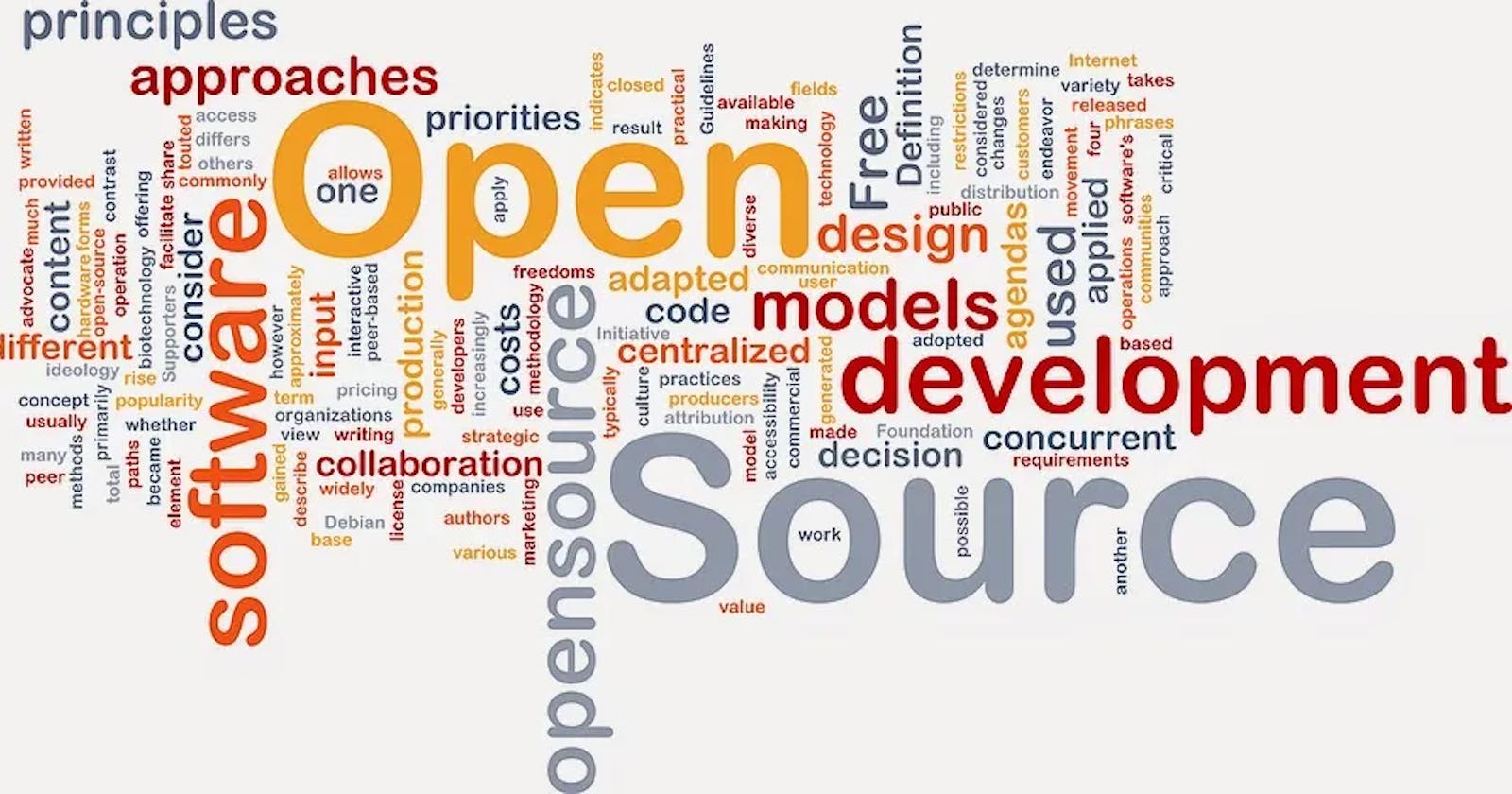Table of contents
Introduction
Open source is a term used to describe a type of software development model where the source code of a program is made available to the public for use, modification, and distribution. The software is often developed collaboratively by a community of programmers who share a common goal. Open source software has become increasingly popular in recent years because it allows developers to work together to create high-quality software that can be used by anyone, anywhere, for any purpose.
If you're a newcomer to the world of open source, you may be wondering how you can contribute. Fortunately, there are many ways to get involved, even if you're new to programming or don't have a lot of experience. Here are some tips to help you get started:
Choose a project that interests you: The first step is to choose an open source project that interests you. There are thousands of projects available on sites like GitHub, GitLab, and SourceForge. Look for a project that aligns with your skills and interests.
Get familiar with the project: Once you've chosen a project, take some time to get familiar with it. Read through the project's documentation, join the community forum, and get to know the other developers who are working on the project.
Start small: When you're new to open source, it's important to start small. Look for issues labeled as "good first issues" or "beginner-friendly" and work on those. This will help you get a feel for the project and its codebase.
Contribute code: Contributing code is one of the most important ways to contribute to an open source project. Look for issues that you can solve, and submit a pull request with your changes. Make sure to follow the project's coding standards and guidelines.
Test and review code: Even if you're not a developer, you can still contribute to open source by testing and reviewing code. Look for issues labeled as "needs testing" or "needs review" and provide feedback on the code changes.
Write documentation: Open source projects also need help with documentation. If you're skilled in technical writing, you can contribute by writing or updating documentation for the project.
Translate documentation: If you're fluent in another language, you can contribute by translating the project's documentation into that language. This can help make the project more accessible to users around the world.
Some open source projects to contribute to
Here are some beginner-friendly open source projects that you can contribute to:
First Contributions: A beginner-friendly project that helps you make your first contribution to open source. The project provides step-by-step instructions and guidance on how to get started with open source contributions. GitHub Repository: github.com/firstcontributions/first-contrib..
VS Code: Visual Studio Code is a popular open source code editor that has a large and active community of contributors. The project welcomes contributions in many areas, including bug fixes, feature additions, and documentation. GitHub Repository: github.com/microsoft/vscode
React Native: React Native is an open source framework for building cross-platform mobile apps. The project welcomes contributions in many areas, including bug fixes, documentation, and new features. GitHub Repository: github.com/facebook/react-native
Mozilla Firefox: Firefox is a popular open source web browser developed by Mozilla. The project welcomes contributions in many areas, including coding, testing, documentation, and design. GitHub Repository: github.com/mozilla/gecko-dev
TensorFlow: TensorFlow is an open source machine learning framework developed by Google. The project welcomes contributions in many areas, including bug fixes, new features, and documentation. GitHub Repository: github.com/tensorflow/tensorflow
These are just a few examples of beginner-friendly open source projects. There are many more out there, so don't be afraid to explore and find one that interests you. Remember, the key to getting started with open source is to start small and take things one step at a time.
Conclusion
Contributing to open source is a great way to learn new skills, build your portfolio, and make a positive impact on the technology community. To get started, choose a project that interests you, get familiar with the project and its community, start small, and contribute code, testing, documentation, or translation. With these tips, you can make meaningful contributions to open source projects and be part of the growing open source movement.
